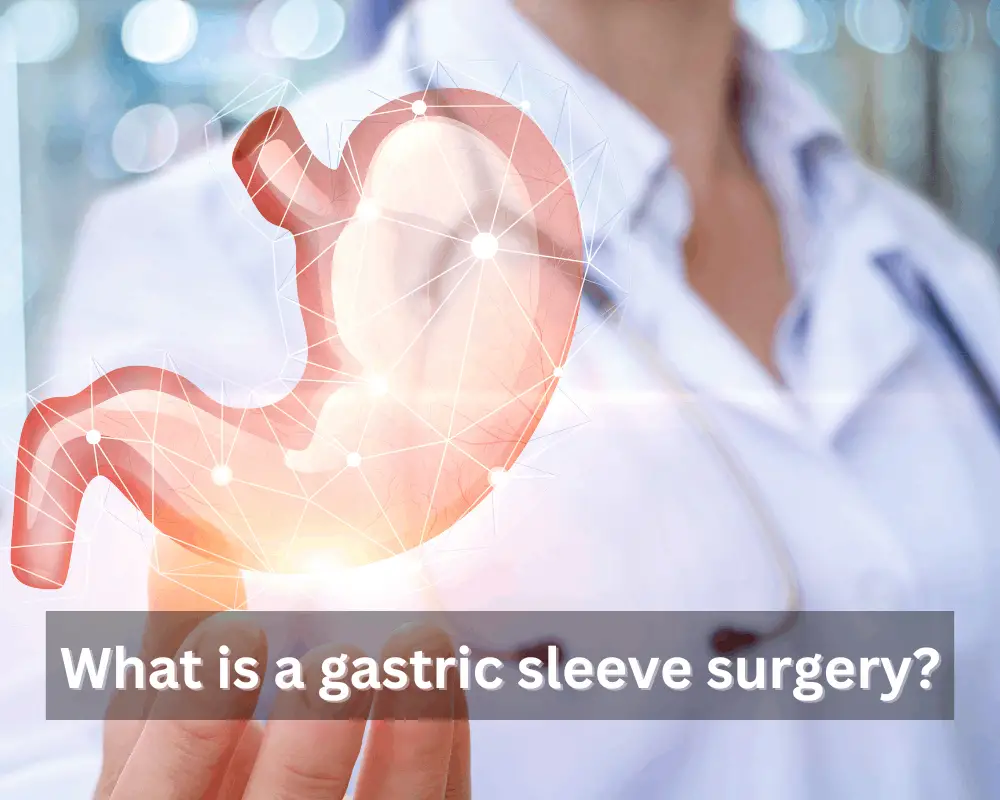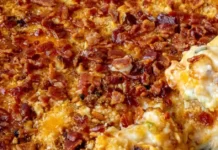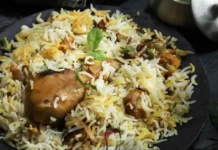Gastric sleeve surgery is a procedure that shrinks the size of your stomach. But, what happens if you eat solid food too soon after? It can cause discomfort, pain, and damage to the stomach lining. Plus, it can prevent successful weight loss.
To protect the healing tissues, liquid and soft foods are recommended first. Gradually increase the consistency of food until you can eat soft solids. This lets your body adjust.
Once you’ve made it to that point, check with your medical team. They can tell you when it’s safe to introduce solid foods back into your diet. Their expertise will help ensure a successful recovery.
What is a gastric sleeve surgery?

Gastric sleeve surgery, also known as sleeve gastrectomy, is a procedure that removes around 80% of the stomach. This leaves a smaller sleeve-like structure, hence the name. It is commonly used to treat obesity, as it limits food intake and alters hunger hormones.
The surgery is laparoscopic – the surgeon makes small incisions and inserts a camera and tools. They remove a large portion of the stomach, creating a new smaller pouch. This lets people feel full after eating smaller portions.
Patients must stick to a strict diet plan post-surgery. At first, only liquids or pureed food. Then gradually soft, and then solid foods can be reintroduced. But eating solid foods too soon after gastric sleeve surgery can cause issues. Too much food may cause discomfort, nausea, vomiting, and stretching of the stomach pouch.
Patients should follow post-surgery dietary guidelines. Small frequent meals with lean proteins like poultry and fish. Avoid processed or deep-fried foods. Eat slowly and mindfully, ensuring thorough chewing. Take small bites and stay hydrated with plenty of water between meals.
Post-surgery diet guidelines
Starting off with clear liquids like water and broth is essential after gastric sleeve surgery. Follow up with full liquids such as protein shakes and soups. After that, slowly introduce pureed foods like mashed vegetables and soft fruits. Lastly, incorporate solid foods but remember to chew thoroughly and eat small portions.
It’s imperative not to eat solids too soon post-surgery as it can lead to discomfort and complications. Always check with your healthcare provider before making changes to your diet.
History tells us of one patient who had a painful consequence for not following post-surgery dietary guidelines – they had to go through an additional surgery! This serves as a reminder that abiding by the diet plan is absolutely necessary. Breaking the rules is like serving your stomach a subpoena for a taste bud court case!
Importance of following the recommended diet
It is vital to follow the recommended diet after gastric sleeve surgery to ensure successful outcomes. This special eating plan helps the healing process, facilitates weight loss, and minimizes complications. It guarantees your body gets adequate nutrition while adapting to the new changes.
It is essential to adhere to the varying phases of the diet. At first, a liquid-only diet allows the stomach to heal and adjust to its reduced size. Then, soft foods are introduced slowly before transitioning to solid foods. Every phase serves an objective in preparing your stomach for regular digestion.
Failure to follow the prescribed diet can have bad effects on your health. Eating solid foods too soon can lead to discomfort, nausea, vomiting, or even expansion of the stomach pouch, reversing the effects of the surgery. Patience and permitting your body to heal in its own time are necessary.
To guarantee a smooth recovery, consider some advice from healthcare professionals. Chew food completely and eat slowly to guard against any strain on your stomach pouch. Consume small meals throughout the day instead of large portions. Avoid high-calorie, sugary, or fatty foods that may impede weight loss efforts.
Furthermore, it is important to sip lots of water between meals while refraining from drinking liquids with meals since it can cause early satiety or distress. Focus on consuming nutrient-dense foods like lean proteins, vegetables, fruits, and whole grains to fulfill your nutritional needs without overloading your digestive system.
By adhering to these tips and being mindful of what you eat after gastric sleeve surgery, you give yourself the best chance at achieving long-term success. Have patience and discipline during this transformative journey towards a healthier lifestyle. Embrace the changes and trust in the process for optimal results.
Risks and complications of eating solid food too soon
Eating solid food before your stomach is ready can lead to abdominal pain, difficulty in digestion, and damage to the surgical site. These risks differ person to person. To avoid any problems, follow your surgeon’s guidelines when it comes to dietary restrictions after gastric sleeve surgery.
- Abdominal Pain: Eating solid food too soon can cause discomfort and pain in the abdomen.
- Digestion Difficulties: Your digestive system may have trouble breaking down food, causing bloating, gas, or other issues.
- Surgical Site Damage: Eating solid food before the recommended time can put strain on the incision site, risking infection or delayed healing.
Signs that indicate you are ready for solid food
Transitioning to solids post-surgery is a milestone. Signs you’re ready?
- Stable weight loss: Consistent weight loss and stable weight for two weeks? Good sign your stomach has healed.
- Good protein intake: Protein is key for healing and weight loss. If you can get enough from shakes or purees, you’re ready for solids.
- No discomfort: Little to no side effects? Time to move on.
- Increased hunger: Craving more than liquids or purees? Solids may be the answer.
- Satisfactory digestion: Nausea or vomiting? Bowel obstruction? Not good signs.
- Dietitian’s guidance: If your dietitian says you’re ready, you’re ready.
Timelines differ, so follow advice from your healthcare team. Patience and adherence are key.
Gradual reintroduction of solid food
Gastric sleeve surgery requires patients to gradually reintroduce solid food for a smooth transition and health maintenance. A tailored plan with the help of a medical professional or dietitian is important for successful digestion and avoiding complications.
- Step one: start with pureed foods. Mashed fruits, vegetables, smooth yogurts and blended soups are gentle on the stomach.
- Step two: transition to soft foods. Well-cooked vegetables, tender meats, fish and poultry should be chewed thoroughly.
- Step three: incorporate regular solid foods. Focus on nutrient-dense options such as lean proteins, whole grains, fruits and vegetables. Eat slowly and listen to your body.
Self-care and overall wellness are essential. Stay hydrated and engage in physical activity. Patience and consistency are key. By gradually reintroducing solid food, you can take an active role in improving your health and well-being. Enjoy a fulfilling lifestyle and regain control of your life. Achieving a healthier future is within reach!
Conclusion
In conclusion, eating solid food too soon after gastric sleeve surgery can have negative effects. It’s important to follow the prescribed diet plan. This can help avoid problems such as vomiting, stomach irritation, and stretching of the stomach pouch. Plus, tough or chewy foods can increase the risk of blockages in the narrowed stomach opening.
Everyone’s recovery process is different. That’s why it’s essential to consult with a health professional and follow their advice. This will help you reach your weight loss goals safely and effectively.
Sarah, a gastric sleeve patient, is a great example of this. She had difficulty when she tried to introduce solid foods earlier than her doctor said. This resulted in her feeling severe discomfort and needing medical intervention to fix the problem.
This story proves how important it is to follow the post-operative guidelines to stop complications and get a successful outcome.
Frequently Asked Questions
Q: Can I eat solid food after gastric sleeve surgery?
A: Yes, you can eventually eat solid foods after gastric sleeve surgery. However, it is important to follow a specific diet plan and gradually reintroduce solid foods into your diet as advised by your healthcare professional.
Q: When can I start eating solid food after gastric sleeve surgery?
A: Your healthcare team will guide you on when to start eating solid foods after gastric sleeve surgery. Typically, it is recommended to start with a liquid and pureed diet for the initial weeks, gradually progressing to soft and then solid foods over time.
Q: What types of solid foods should I start with after gastric sleeve surgery?
A: When transitioning to solid foods after gastric sleeve surgery, it is best to start with soft and easily digestible options such as cooked vegetables, lean proteins, and well-cooked grains. It is important to chew your food thoroughly and eat slowly to avoid any discomfort or complications.
Q: Are there any solid foods I should avoid after gastric sleeve surgery?
A: It is recommended to avoid certain types of solid foods after gastric sleeve surgery, such as tough meats, bread with dense textures, fibrous fruits and vegetables, and foods high in sugar or fat. These foods can be harder to digest and may cause discomfort or lead to complications.
Q: How should I modify my portion sizes when eating solid foods after gastric sleeve surgery?
A: After gastric sleeve surgery, your stomach size will be significantly reduced. It is important to adhere to portion control and eat small, frequent meals. Focus on nutrient-dense foods that provide essential vitamins and minerals while maintaining a balanced diet.
Q: Can I ever eat regular solid foods again after gastric sleeve surgery?
A: Yes, you can eat regular solid foods again after gastric sleeve surgery. However, it is crucial to make long-term dietary and lifestyle changes to maintain a healthy weight and overall well-being. It is best to consult with your healthcare team for personalized guidance and support.







